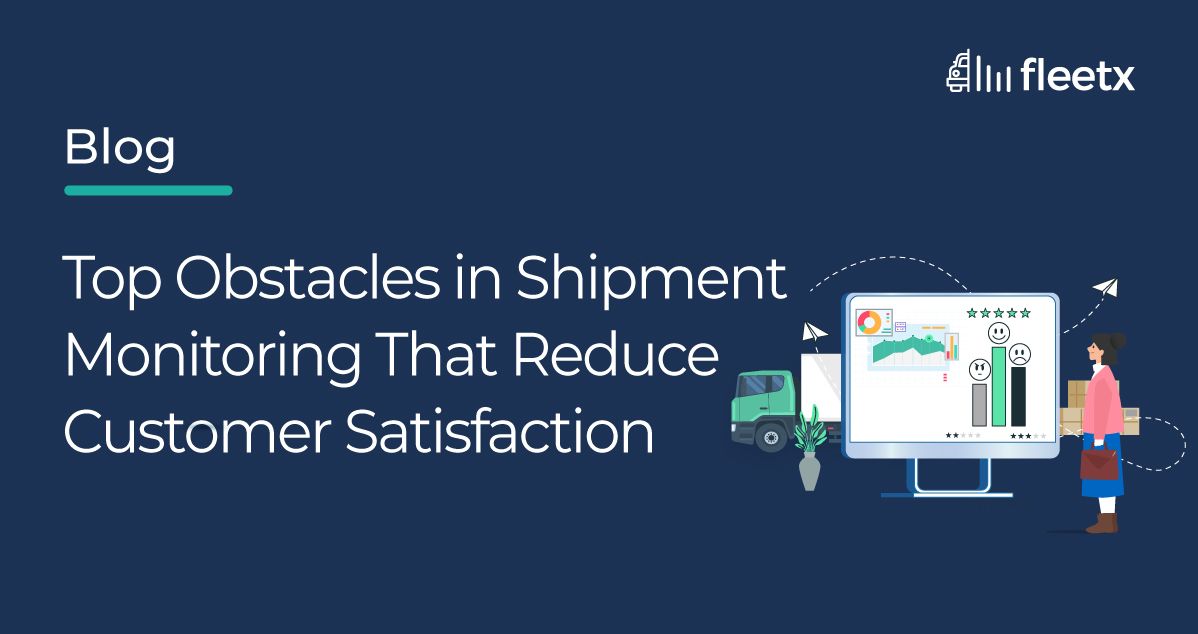
As the logistics industry in India grows to meet the demands of a fast-developing nation, fleet managers and owners are seeking out solutions that help their business to not only stay competitive, but also ahead of the curve by preparing for what the future is sure to bring. The integration of smart technology solutions has emerged as a game-changer in this aspect, providing enhanced fleet management capabilities.
As a leading provider of such innovative solutions, Fleetx is committed to empowering businesses to streamline their operations and boost overall efficiency. In this article, we will explore the six best ways to achieve fleet productivity through the implementation of cutting-edge technology.
The Undeniable Role of Smart Solutions In Fleet Productivity
Managing a fleet comes with many challenges, from rising fuel costs to maintenance issues and the need for real-time tracking. These challenges can impact productivity and, consequently, impact the bottom line of logistics companies. Recognizing and addressing these choke points is crucial for organizations looking to optimize their fleet operations.
Smart solutions play a pivotal role in enhancing fleet productivity by leveraging technology to streamline operations and optimize efficiency. These solutions integrate advanced telematics, real-time data analytics, and connectivity to empower fleet managers with comprehensive insights into vehicle performance, driver behavior, and operational logistics.
By harnessing the power of data-driven decision-making, fleet managers can make informed choices, allocate resources effectively, and identify areas for improvement. Ultimately, the role of smart solutions in fleet productivity extends beyond mere operational efficiency, contributing to cost reduction, improved safety, and a sustainable approach to fleet management in today's dynamic transportation landscape.
6 Best Ways To Achieve Fleet Productivity
1. Real-time GPS Tracking:
Implementing a robust real-time GPS tracking system is fundamental to achieving fleet productivity. This technology allows companies to monitor the location of their vehicles, enabling efficient route planning, reducing fuel consumption, and improving overall fleet visibility. With the cutting-edge GPS tracking solutions available in the market, businesses can make informed decisions in real-time, leading to enhanced operational efficiency.
2. Predictive Maintenance:
Unplanned maintenance can be a major hindrance to fleet productivity. Smart technology solutions offer predictive maintenance capabilities by utilizing data analytics and sensor technology to predict when a vehicle is likely to experience issues. By proactively addressing maintenance needs, companies can minimize downtime, extend the lifespan of their vehicles, and optimize operational efficiency.
3. Fuel Management Systems:
Fuel costs constitute a significant portion of a fleet's operational expenses. Integrating fuel management systems helps in monitoring fuel consumption, identifying inefficiencies, and implementing strategies to reduce overall fuel costs. Innovative fuel management solutions provide real-time insights, allowing businesses to make data-driven decisions that contribute to improved fleet productivity.
4. Driver Performance Monitoring:
The human element plays a crucial role in fleet productivity. Monitoring driver behavior and performance can help identify areas for improvement and ensure adherence to safety standards. With advanced driver performance monitoring systems, companies can promote responsible driving practices, reduce accidents, and enhance overall fleet efficiency.
5. Intelligent Route Optimization:
Optimizing routes is key to minimizing travel time, reducing fuel consumption, and maximizing delivery efficiency. Smart technology solutions leverage algorithms and real-time traffic data to provide intelligent route optimization. This ensures that drivers take the most efficient paths, leading to quicker deliveries and improved overall fleet productivity.
6. Integration of IoT Devices:
The Internet of Things (IoT) has revolutionized fleet management by enabling seamless communication between vehicles, sensors, and central management systems. Integrating IoT devices allows for comprehensive data collection, enabling companies to make informed decisions, optimize workflows, and enhance the overall efficiency of their fleet operations.
The Way Forward
Achieving fleet productivity is not just an admirable goal; it's a necessity for staying competitive. Embracing smart technology solutions empowers businesses to overcome operational challenges and unlock new levels of efficiency. By implementing real-time GPS tracking, predictive maintenance, fuel management systems, driver performance monitoring, intelligent route optimization, and IoT integration, companies can position themselves at the forefront of the industry, delivering superior service while maximizing their bottom line. Explore the possibilities, embrace innovation, and propel your fleet towards unparalleled productivity.







